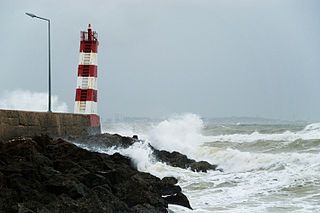An Enemy of a Working Energy Policy: Bad Ideas
I spend a fair amount of time writing about how the vested interests in energy (e.g., the oil companies), keep bad ideas in place (e.g., extracting and burning petroleum), at the expense of good ideas (e.g., renewables).
But there is, in fact, another major enemy of good ideas: bad ideas.
Here’s an article on a topic I’ve seen before: synthesizing fuel from the CO2 in ocean water. As it happens, there are some excellent concepts in synthetic fuels from CO2, but, as a minimum requirement, they contemplate the use of point-sources for the carbon dioxide, for example, coal-fired power plants or concrete manufacturing facilities. Extracting CO2 from the ocean or the atmosphere will be exorbitantly expensive and is therefore a non-starter.
Dr. David Doty, one of the world’s most senior researchers in this space, amplifies my comments:
For reasons I can’t begin to understand, the U.S. Navy keeps promoting this garbage. By the measure that matters most, kg/kg, the concentration of CO2 in surface waters of the ocean is less than 1/4 its concentration in the atmosphere. I pointed out their misrepresentations at least five years ago here — about 2/3 of the way down the page, under “Sea Fuels,” and “More Sea Fuels.”
My crude estimate several years ago was that taking CO2 from the ocean would be at least 5 times more expensive than taking CO2 from the atmosphere, and taking CO2 from the atmosphere would be at least 5 times more expensive than taking it from point sources.
Needless to say, the process of evolving a working approach to supplying power for a large and increasingly energy-hungry population is not served with the continued promotion of ideas that lack scientific merit.


I would say that synthesising fuel from CO2 by anything other than a biological process is a flawed concept to start – with whether from a point source, atmosphere or sea.
Aside from the huge difficulty and expense of isolating the CO2 to carry out the synthesis, there is the issue of the energy consumption in the synthesis process.
To me, the concept of burning a fossil fuel then recovering the CO2 and turning it into more fuel is ridiculous – it would be far more efficient not to burn the fuel in the first place, and to use whatever energy source you intend to use to re-synthesise the fuel directly to power electrical loads.
If you must synthesise fuels, then possibly ammonia using electrolysis to generate hydrogen and reacting it with atmospheric nitrogen might be a better candidate – using stranded wind energy – excess production during off peak hours, wind farms in windy areas far from load centres, or spare nuclear power when supply exceeds demand.
It seems to me that biofuels have the same carbon neutrality that syn fuels do.
I agree that once we no longer need liquid fuels because of their attractive energy densities, all hydrocarbon fuels have to go out the window in favor of EVs charged with renewable energy.
Fortunately, as we’re seeing, algae CO2 capture and liquid fuel production is making some progress.
The easiest and most dramatic reduction, once again by Five times ..if not more, of that point-of-source generation of CO2 from our increasingly energy-hungry population ..and cars; would be from implementing the Newtonian principles (Laws of Motion) to millions of those gas guzzlers on the road that continue to emit CO2 – for no fault of theirs. (You see our planets never needed any fuel to rotate and go around and round the sun for billions of years now and would continue to do so endlessly).